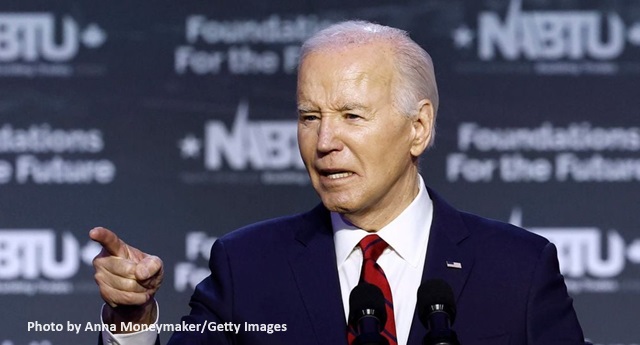
A recent trend on college campuses is to install “safe spaces,” places where students — or certain identity-group subsets of students — can go to feel safe. These safe spaces are exclusionary by design; they protect students by insulating them. In extreme cases, safe spaces have been deemed to cover entire campuses, leading to the exclusion or disinvitation of undesirable visitors.
This “safe space” trend has been rightly ridiculed for its tendency to protect college students’ feelings from exposure to opposing viewpoints. Such exposure serves to sharpen the mind and used to be college’s main virtue. Thus, protecting students from “harm” by sequestering them from intellectual diversity undermines the whole point of college education.
But the silly “safe space” trend adopted the language of harm and safety because those are important considerations. Sticking with the collegiate context, students can’t devote themselves to their studies if they take their life in their hands every time they walk across campus. Fertilizing their mental acreage is orders of magnitude more difficult when outside sounds like a warzone, or a rock concert, or both at the same time.
The safety of college campuses — most of whom have a department devoted to preserving it — is often taken for granted, else loving parents would think twice before sending sweet Suzy off to a dormitory. Basic physical safety should be a guarantee on which all students can rely, regardless of their background. Unfortunately, that guarantee is no longer universal.
Where is the safe space for Jews?
On Sunday, Rabbi Elie Buechler of Columbia University’s Jewish Learning Initiative on Campus (JLIC) strongly recommended that Jewish students “return home as soon as possible and remain home until the reality in and around campus has dramatically improved.”
“The events of the last few days, especially last night, have made it clear the Columbia University’s Public Safety and the NYPD cannot guarantee Jewish students’ safety in the face of extreme anti-Semitism and anarchy,” wrote Buechler. “It is not our job as Jews to ensure our own safety on campus. No one should have to endure this level of hatred, let alone at school.”
Last Thursday, anti-Semitic activists took over Columbia University’s central quad, turning it into a tent city overnight. The activists, many of whom are students, have praised Hamas’s military arm Al-Qassam, called for the destruction of Israel, and openly invited the killing of counter-protestors. Despite more than 100 arrests on Thursday, the rabble have only grown bolder.
Now, university administrators appear to have given up any hope of reasserting control of their campus property. The rabbi’s counsel to Jewish students was “the reason why classes went virtual at Columbia today,” Rabbi Yaakov Menken, managing director of the Coalition for Jewish Values, said Monday on “Washington Watch.” By Tuesday, Columbia University announced it was switching to hybrid classes for the remainder of the semester.
“There was one professor, Shai Davidai, who was having none of it,” Menken continued. “He said, ‘I am bringing 10 students and alumni with me Monday morning. We’re going to go on to the campus. We’re going to go right into the middle of that anti-Semitic demonstration, and we insist you keep us safe.’”
Rather than keep him safe, “Columbia deactivated the access card of their professor,” Menken related in disbelief. “Professor Shai Davidai of Columbia University had his access card deactivated by the university to prevent him from interfering with the anti-Semitic, pro-Hamas demonstration at that campus.” Columbia University COO Cas Holloway personally appeared at the campus gate to prevent Davidai from entering the.
Davidai is an assistant professor in Columbia Business School’s Management Division, and he also leads Columbia’s anti-Semitism task force. Columbia administrators had to know that barring the head of the anti-Semitism task force from campus would provoke outrage, yet they chose to confront the backlash rather than confront the unruly mob that has taken over their campus. “Columbia was confronted with a clear choice either the anti-Semitic barbarians or the Jews. They expressly chose the anti-Semitic barbarians,” exclaimed Menken. “The entire administration of Columbia is utterly compromised by Jew hatred.”
Where is the safe space for Jews?
Certainly not at Columbia University, nor at Yale. Sahar Tartak, a Jewish student at Yale who is also a conservative reporter, was physically assaulted and blocked by protestors while attempting to film the pro-Hamas demonstration — which included taking down an American flag on a university flagpole — at that university. After demonstrators surrounded and blockaded her, a keffiyeh-garbed man stabbed Tartak in the eye with a Palestinian flag he carried.
At this point, the terrorist groupies aren’t even pretending to be motivated by non-violent, humanitarian concern for Palestinian civilians. “Anti-Semitism is always about finding a façade, a pretense, and then moving on to their end goal, which has always been ethnic cleansing and genocide,” argued Menken. “They were never anti-Israel protests. They were always anti-Semitic protests that glorify terrorism, that glorify atrocities, actual beheading of babies and rapes and holding hostages. These are not decent human beings.”
Where is the safe space for Jews?
You won’t find one at MIT, NYU, University of Michigan, Ohio State University, UC Berkeley, or Boston University. I’m sure that’s only the tip of the iceberg, since the anti-Semitic protests have reached even smaller, lesser known schools like Cal Poly Humbolt or UNC Charlotte.
At this point, it seems like American Jews are safest anywhere that isn’t a college campus. But that’s obviously not a workable solution in the long run. Today’s students are tomorrow’s lawyers, bankers, and politicians — not to mention professors. Are American Jews simply supposed to accept a second-class status, where they don’t get to go to college and are governed by those who hate them? How well did that work in 1930s Germany? If Jews aren’t safe on American college campuses, then ultimately they won’t be safe anywhere else in America.
Where is the safe space for Jews?
Jews could perhaps find a safe haven on other shores. But a cursory glance around the world shows the same violent anti-Semitism on shameful display in American universities. Judging by U.N. voting records, America sits near the top of the list of pro-Jewish countries. If Jews can find few countries friendlier than the U.S., and they are hated here, where can they go?
Where is the safe space for Jews?
The obvious exception is the world’s only Jewish-majority nation-state (although two million Arabs also live there peacefully), the postage stamp-sized parcel of seacoast known as Israel. Established in 1948 in response to the Holocaust, the modern state of Israel has provided a safe haven for persecuted Jews of every nationality.
Yet Israel’s Jews are not safe even within their own paper-snowflake borders. Hamas proved that on October 7, 2023, when they launched an unprovoked invasion on a Jewish holy day, slaughtering more than 1,200 Jews, kidnapping more than 200 prisoners, burning, raping, and pillaging wherever they could. Hamas, a U.S.-designated terrorist group supported by America’s geopolitical adversary Iran, openly calls for Israel’s “annihilation” and has broadcast its intention to repeat its October 7 attack as often as it is capable.
Hamas is not Israel’s only threat. Hezbollah, another Iran-backed terror group, operates out of Israel’s northern neighbor Lebanon, and it has kept up frequent rocket barrages against Israel to divide its attention. “There are, I believe, about 80,000 Israelis who can’t go home every night because the rockets being shot in by Hezbollah out of Lebanon,” Rep. Glenn Grothman (R-Wisc.) remarked on “Washington Watch.” “Obviously Israel cannot permanently tell 70 or 80,000 of their citizens, ‘you can’t go home at night.’”
Behind these groups lies Iran, a global terror sponsor, which is close to developing a nuclear weapon and is avowedly committed to Israel’s destruction.
Where is the safe space for Jews?
But perhaps the campus mobs openly supporting Hamas are ignorant of Hamas’s goal and merely want American Jews to return to Israel. If that were true, they would also have to be ignorant of the words coming out of their own mouth.
“From the river to the sea, Palestine is almost free,” they chanted. That’s a strange twist on their classic, “From the river to the sea, Palestine will be free.” By “free,” they mean free of Jews. By “from the river to the sea,” the chant invokes (and confuses) the boundaries of the land God promised to give to Israel in Deuteronomy 11:24, “from the River, the River Euphrates, to the western sea.” The technical term for seeking to drive all people of a given ethnic group out of a given territory is “ethnic cleansing.”
Again, they chanted, “There is only one solution: intifada, revolution.” “One solution” echoes the Nazis’ “Final Solution to the Jewish problem”: extermination camps. Intifada and revolution — both terms for riots or armed uprisings — are the means by which this chant proposes to achieve its end: the annihilation of all Jews everywhere.
No, the protestors know very well what unthinkable barbarity these chants call for. They share the end of Hamas.
Where is the safe space for Jews?
The utmost irony is that these disgraceful displays of anti-Semitism were sparked by the attack on Israel. When most sovereign nations suffer an unprovoked attack by an international terrorist outfit, they receive universal acknowledgements of sympathy, solidarity, and solace, even from parties who usually maintain a frosty distance. But when Israel was attacked, that outrage provoked not only sympathy for Israel but also expressions of solidarity with those who attacked her — even before Israel had mounted any military response.
This has led some Jews, even non-Zionists, to the inevitable conclusion that Israel’s demise would only result in further attacks on Jews everywhere. “The idea that Jews can be safe anywhere if they’re not secure in Israel has just been shattered,” said foreign policy expert Caroline Glick. “It’s very clear that the security of all Jews everywhere is contingent on Israel defeating our enemies in Israel.”
Under the Biden administration, Israel’s closest and most powerful friend is working overtime to snatch that rightful victory away from them. If that happens, it will lead right back to the question we’ve been asking all along.
Where is the safe space for Jews?
AUTHOR
Joshua Arnold is a senior writer at The Washington Stand.
RELATED ARTICLE: Remembering the Passover in Troubled Times
EDITORS NOTE: This Washington Stand column is republished with permission. All rights reserved. ©2024 Family Research Council.
The Washington Stand is Family Research Council’s outlet for news and commentary from a biblical worldview. The Washington Stand is based in Washington, D.C. and is published by FRC, whose mission is to advance faith, family, and freedom in public policy and the culture from a biblical worldview. We invite you to stand with us by partnering with FRC.





















